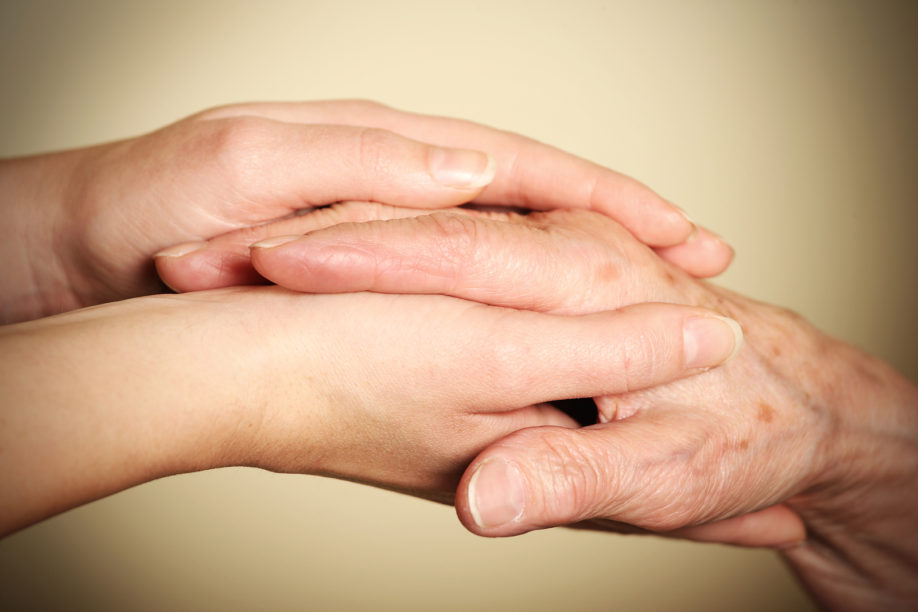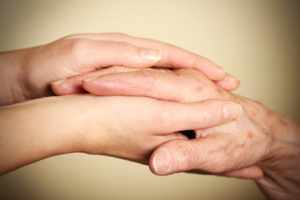
 Many caregivers cannot leave home due to caregiving responsibilities. You can participate in a web-based seminar — or webinar — from the privacy of your home. Join either live or view the archived version within a few day of the live webinar (in most cases). All webinars listed are free. All times shown are Pacific Standard Time. Here are webinars that may be of interest to caregivers in February 2019…
Many caregivers cannot leave home due to caregiving responsibilities. You can participate in a web-based seminar — or webinar — from the privacy of your home. Join either live or view the archived version within a few day of the live webinar (in most cases). All webinars listed are free. All times shown are Pacific Standard Time. Here are webinars that may be of interest to caregivers in February 2019…
Tuesday, February 5, 10:00-11:00am
“Advocacy in Healthcare Settings”
Program: While you hope to never receive the dreaded call that mom has fallen or dad had a stroke, many families are not prepared for what happens next. Knowing the right questions to ask, how to be an effective advocate, and what documents to have in place can make a difference. Planning ahead may help you navigate the complex and often fragmented healthcare system, which can lead to better outcomes. Learn how to communicate more effectively with healthcare providers, address grievances, and identify helpful resources.
Presenter: To be advised at time of webcast
Presented by: MIT Work/Life Center
Archived webinars-check at time of webinar
Wednesday, February 6, 10:00-11:00am
“Caregiving Along the Care Continuum”
Program: Today, the burden of care for aging adults falls primarily on family members. These family caregivers play an important role in the care continuum, providing more than $470 billion worth of unpaid care and support (Caregiving in the U.S. 2015 Report). As the needs of their loved ones increase, the caregiving role tends to change. Webinar participants will learn how the caregiving role can change over time, about signs that a change in care may be needed and the importance of self-care for family caregivers.
Presenter: Lakelyn Hogan, gerontologist, caregiver advocate
Presented by: Home Instead Senior Care and American Society on Aging
Tuesday, February 12, 11:30am-12:30pm
“Connecting and Communicating in Dementia Care”
Program: This course teaches practical skills for communicating and connecting with individuals who have Alzheimer’s disease or dementia. These diseases cause changes in the brain that impair verbal communication skills, and practical techniques are provided that can enhance communication. Learn why social connections are beneficial for individuals with memory loss and how to effectively facilitate social engagement and personal connections.
Presenter: Kim Bailey, MSG- Program and Education Specialist at AlzOC.
Presented by: Alzheimer’s Orange County
Thursday, February 14, 10:00-11:00am
“AFA Care Connection Webinar: Understanding Love”
Program: Dr. Edward Shaw co-authored the book “Keeping Love Alive As Memories Fade: The 5 Love Languages and the Alzheimer’s Journey” The book describes his personal story of caring for his wife coupled with an innovative use of the five love languages in dementia counseling. During this presentation Dr. Shaw will describe how “The Five Love Languages” can be applied to dementia caregiving.
Presenter: Edward G. Shaw<, MD, MA
Presented by: Alzheimer’s Foundation of America
Tuesday, February 19, 10:00-11:00am
“Alzheimer’s Live Chat: Living with Hope”
Program: Jim and Geri Taylor were featured in The New York Times, “Fraying at the Edges,” and they are active advocates within the Alzheimer’s community. Geri and Jim will share their story along with practical tips for living with Alzheimer’s, strategies for remaining independent, and how they continue to pursue their passions and make a difference.We will take live questions during the chat, or feel free to send them in ahead of time to livechat@homeinstead.com.
Presenters: Geri and Jim Taylor, a person with Alzheimer’s and her care partner
Presented by: Help for Alzheimer’s Families
Thursday, February 21, 6:30-8:00pm
“Navigating the end of life: A roadmap for caregivers”
Program: In this webinar, we will talk about practical suggestions for taking care of yourself and your loved one in the time that remains. Working with your loved one to locate and organize important documents and information in the time that remains can make it easier for friends and family to carry out their wishes after they’re gone. Arranging the affairs of your loved one can be less stressful if you have the opportunity to talk with them about key documents such as: A master contact list of friends, family and key advisors; financial information including bank accounts and investments; final wishes and advance directives such as a living will.
Pre-planning for arrangements after death-You’ll also learn about decisions that need to be made after someone dies, and resources to help you work through arrangements after death. Some of the immediate steps include caring for their body, arranging for a funeral or celebration of life, writing an obituary, and carrying out their wishes for the distribution of their money, property, and belongings. Working through the arrangements after death can be emotionally and physically exhausting. Grieving is a very personal process that may take months for some, and years for others. Don’t be afraid to reach out for support from friends, family, or counselors to help you in your journey through grief.
Presenter: Jeanne Sedun, author of the book, “Someone I Love is Dying”
Presented by: Huddol
Register (note-you must be a registered user on the Huddol site to be able to sign up for webinars)
Wednesday, February 27, 11:00am-12:00pm
“Discharge Planning is a Family Affair”
Program: For most hospital patients and their families being discharged from the hospital is good news. Yet this announcement often means a new set of challenges to consider. Ideally, the decisions and needs will have been discussed before the day of discharge. This webinar will describe hospital discharge planning-who does it, what it’s intended to accomplish, and what a family should know to be fully prepared for the transition, whether the patient goes home, with or without formal home care, or to a Skilled Nursing Facility (SNF) for short-term rehab or further care.
Presenters: Carol Levine, MA, director of the Families and Health Care Project at United Hospital Fund in New York City, former caregiver for her late husband.
Kristina Ramos-Callan,MA, is a project manager at United Hospital Fund in New York City.
Presented by Family Caregiver Alliance
Wednesday, February 27, 4:00-5:00pm
“The Power of Forgiveness: How it can help caregivers”
Program: In this webinar, we’ll learn how not forgiving others negatively impacts us, not the person we don’t want to forgive. We’ll look at some of the research about forgiveness to learn how to do it effectively and how to start to practice it. We’ll learn that healthy forgiveness does not need to condone the egregious act of the other. The result of learning about and practicing forgiveness can give us, as caregivers, a new perspective that can help us emotionally during the challenging times we are already in.
Presenter/Presented by: Janet Edmunson, M.Ed.
Archived webinars are usually available for several months after webcast on Janet’s website